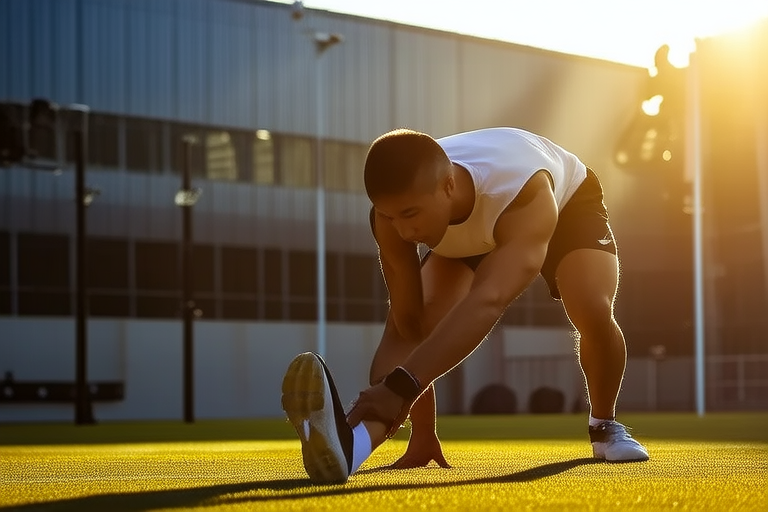Mastering Sports Science: Tips and Precautions for Peak Performance
Sports science plays a pivotal role in enhancing athletic performance. It combines various disciplines such as physiology, psychology, biomechanics, and nutrition to provide a holistic approach to training and competition. By understanding the scientific principles underlying physical activity, athletes can optimize their performance, reduce the risk of injury, and achieve their full potential. This article explores the key components of sports science and provides practical tips for athletes aiming for peak performance.
Key Principles of Sports Science
Nutrition
Proper nutrition is fundamental to athletic success. An athlete’s diet must provide sufficient energy, support muscle growth, and facilitate recovery. A balanced diet rich in carbohydrates, proteins, healthy fats, vitamins, and minerals is essential. Carbohydrates are the primary fuel source for high-intensity activities, while proteins aid in muscle repair and growth. Healthy fats contribute to hormone production and cell function. Vitamins and minerals play critical roles in metabolism, immune function, and overall health.
Practical Tips:
- Eat a variety of nutrient-dense foods.
- Stay hydrated by drinking plenty of water throughout the day.
- Consume a balanced meal containing protein, carbohydrates, and healthy fats within two hours after exercise.
Hydration
Hydration is crucial for maintaining optimal performance and preventing dehydration. Dehydration can lead to fatigue, reduced endurance, and impaired cognitive function. Athletes should aim to drink enough fluids to replace sweat losses during exercise. The amount of fluid needed varies depending on factors like intensity, duration, environmental conditions, and individual differences.
Practical Tips:
- Drink water regularly throughout the day, even when not exercising.
- Monitor urine color; it should be pale yellow.
- Avoid sugary drinks and excessive caffeine intake.
Sleep
Sufficient sleep is vital for physical and mental recovery. During sleep, the body repairs tissues, consolidates memories, and regulates hormones. Lack of sleep can impair reaction times, decision-making, and mood regulation. Most adults need seven to nine hours of sleep per night, but individual needs may vary.
Practical Tips:
- Establish a consistent bedtime routine and stick to it.
- Create a restful environment by minimizing noise, light, and temperature extremes.
- Avoid stimulants like caffeine and nicotine close to bedtime.
Recovery Techniques
Effective recovery strategies are essential for reducing muscle soreness, promoting tissue repair, and preventing overtraining. Active recovery, stretching, massage, foam rolling, and contrast water therapy are all beneficial. Additionally, compression garments can enhance blood flow and reduce swelling. Rest days are also important for allowing the body to recover fully.
Practical Tips:
- Incorporate active recovery sessions, such as light jogging or swimming, into your training program.
- Practice yoga or stretching exercises to improve flexibility and mobility.
- Consider using massage guns or foam rollers to alleviate muscle tightness.
Mental Preparation
Mental preparation is often overlooked but is just as important as physical conditioning. Mental toughness, focus, and resilience can significantly impact performance. Visualization, goal setting, and positive self-talk are effective techniques for enhancing mental readiness. Athletes should also develop coping strategies for managing stress and anxiety.
Practical Tips:
- Visualize successful performances before competitions.
- Set specific, measurable, achievable, relevant, and time-bound (SMART) goals.
- Use positive affirmations to build confidence and maintain a positive mindset.
Common Mistakes to Avoid
Despite best intentions, many athletes make common errors that hinder their progress. Overtraining, poor nutrition, inadequate recovery, and insufficient mental preparation are frequent pitfalls. Overtraining occurs when an athlete pushes too hard without adequate rest, leading to burnout and increased risk of injury. Poor nutrition can result in deficiencies that impair performance and recovery. Inadequate recovery prevents the body from repairing tissues and adapting to training stimuli. Insufficient mental preparation can undermine confidence and focus during competition.
To avoid these mistakes, athletes should listen to their bodies, adjust training loads as needed, prioritize proper nutrition and hydration, ensure adequate recovery, and invest time in mental preparation. Seeking guidance from qualified professionals, such as coaches, nutritionists, and sports psychologists, can also help prevent errors and optimize performance.
Precautions Necessary to Prevent Injuries
Preventing injuries is crucial for maintaining long-term athletic success. Proper warm-up and cool-down routines, gradual progression in training intensity and volume, appropriate equipment, and adherence to safety guidelines are all important measures. Warming up increases blood flow to muscles, raises core temperature, and prepares the nervous system for activity. Cooling down helps reduce muscle stiffness and promotes recovery. Gradual progression allows the body to adapt to increasing demands, reducing the risk of overuse injuries. Using appropriate equipment, such as well-fitting shoes and protective gear, can prevent accidents and protect vulnerable areas.
Additional precautions include maintaining good posture, practicing proper technique, and incorporating strength and flexibility exercises into training programs. Regular medical check-ups and consultations with healthcare providers can also identify potential issues early and provide personalized advice. By taking these precautions, athletes can minimize their risk of injury and stay healthy and competitive.
Conclusion
Integrating sports science into training routines offers numerous benefits for athletes seeking peak performance. By understanding and applying the key principles of sports science, athletes can optimize their nutrition, hydration, sleep, recovery, and mental preparation. Avoiding common mistakes and taking necessary precautions further enhances safety and effectiveness. Ultimately, mastering sports science enables athletes to reach their full potential, perform at their best, and enjoy long-term success in their chosen sport.










